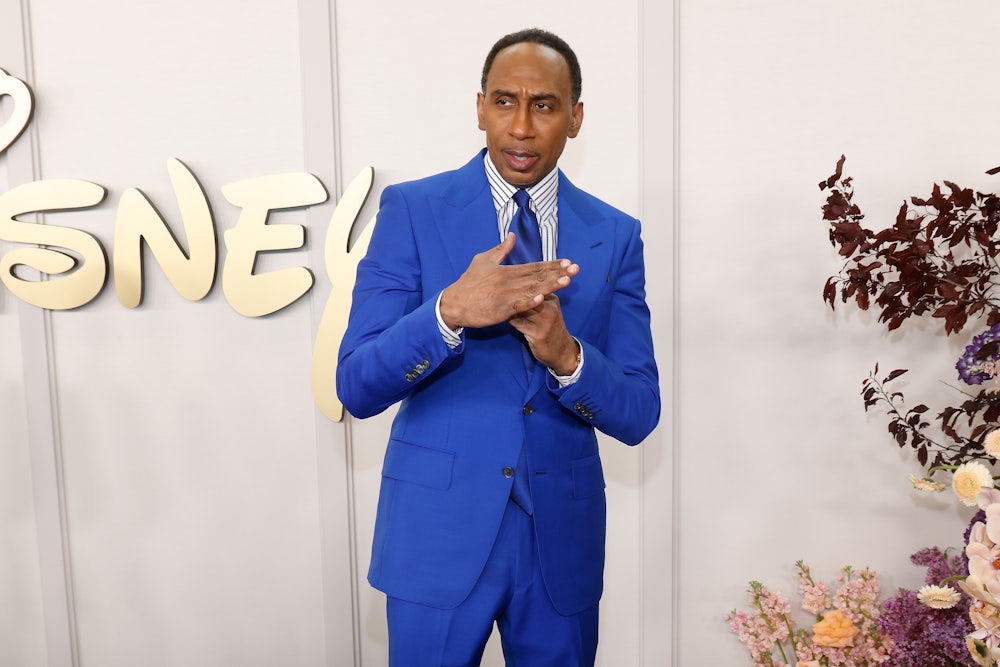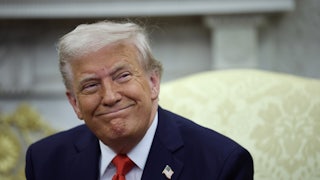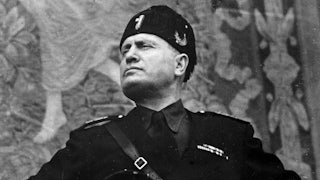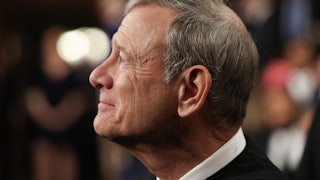Speaking at The Wall Street Journal’s annual CEO Council Summit in December, Virginia Senator Mark Warner neatly summed up the problem his party faced as it prepared for the onslaught of Donald Trump’s second term. “I think, frankly, the Democratic brand stinks,” Warner said.
In the subsequent five months, poll after poll has only bolstered Warner’s diagnosis. The Democrats are deeply unpopular, with both the general public and their own voters. Early primary polling, meanwhile, suggests no clear front-runner for the party’s 2028 nomination or, for that matter, any ideological direction whatsoever. Only three candidates have polled over 10 percent: Kamala Harris, who just lost an election, Alexandria Ocasio-Cortez, who has maintained that she has no desire to run, and Pete Buttigieg, who rarely—and then only barely—squeaks into double digits. With the party in such disarray, one possible conclusion is that it’s rife for hijacking in a similar way to the GOP in 2015—by a charismatic populist from outside the establishment.
There’s just one problem: Where to find the right charismatic outsider for an insurgent campaign?
In recent months, attention has quickly coalesced around one man: Stephen A. Smith. Perhaps the most controversial sports personality in the country, the former newspaper reporter and columnist has spent the last two decades ranting and raving on sports TV. Now he’s quickly remade himself as a political commentator, diagnosing the many ills of the Democratic Party and regularly sparring with right-wing pundits like Fox News’s Sean Hannity. In Smith, the media has found what it’s looking for: an outsider candidate who is always eager to talk. But has anyone else?
There are, to be fair, a few signs that his campaign might have legs. On April 4, the Pablo Torre Finds Out podcast conducted a 1,021-person Rasmussen poll of likely voters that pitted Smith against other potential 2028 presidential candidates in primary and general election matchups. The results were eyebrow-raising, to say the least. In a multicandidate primary race, Stephen A. came in second only to Harris, polling at 24 percent to her 45 percent. A head-to-head primary matchup with Ocasio-Cortez saw him at 28 percent to her 32. He trailed California Governor Gavin Newsom by just three points, and in a general election contest against JD Vance, he scored a robust 34 percent to Vance’s 38 percent, whom he led by 28 points ahead among Black respondents. (One—typically unspoken—assumption behind the media’s elevation of Smith is that he will help reverse recent Democratic struggles with Black men because he is a Black man who many other Black men are already familiar with because of his prominence as a sports pundit and cultural figure.)
This development is easy to scoff at—the 2028 primary is still a long way away, and Smith has zero political experience. Not only that, he is a deeply unserious figure whose rise in the world of punditry was made possible by his willingness to dispense with sincere or thoughtful analysis in favor of treating the sports and athletes he covers as the fodder for outrageous commentary and hot takes.
He doesn’t do x’s and o’s, he does viral clips and quotables. He called Lamar Odom a “crackhead” and threatened Kevin Durant not to “make an enemy” out of him, has most recently engaged in a very public feud with Lebron James, in which he claimed he would have “immediately swung” on the six-foot-nine, 250-pound NBA all-time scoring leader if he found himself in his vicinity. His non-sports commentary is arguably even worse—in 2009, he argued that the actress Maggie Gyllenhaal “wasn’t attractive enough” to star in The Dark Knight.
These actions are miles away from what we consider to be “presidential,” but one reason he has become a fixation in the media class is because they are unmistakenly Trumpian. He is arguably the dominant force in a hot-take environment because he truly excels at one thing more than anything else: drawing attention to himself.
It is unsurprising, then, that Smith has gleefully encouraged speculation about a potential presidential run. For weeks now, he’s been on the exact kind of “I’m not running for president” media tour that everyone who ends up running for president does. Recently he’s been everywhere from the center (ABC’s This Week) to the right (he hosted right-wing debate-shrew Ben Shapiro on his podcast), to the mainstream liberal (Pod Save America)—and he increasingly comes across as someone who really does seem interested in running for president. Indeed, when asked by This Week’s Jon Karl about the growing speculation, Smith said he had “no choice” but to consider a run. “I’ve had folks who are pundits come up to me. I’ve had folks that got a lot of money, billionaires and others, have talked to me about exploratory committees and things of that nature,” Smith said.
What would a Stephen A. campaign actually look like? He has presented himself as a clear-eyed outsider who embraces common sense while dispensing with recent excesses—particularly when it comes to “wokism” and “cancel culture.” Aside from that, though, he’s all over the place. “I’m a registered independent, I’m not a Democrat. I’ll vote for a Republican in a heartbeat. I might not have voted for Trump, but I’m not averse to all conservative policies. I have some conservative policies I support, I have a lot of liberal policies I support,” said Smith to Pod Save America’s Tommy Vietor in March, hitting the political positions of millions of median American voters in seconds. “I don’t like high taxes, I don’t like open borders.”
Smith’s depiction of himself as an outsider guided by common sense and a willingness to shirk political pieties certainly sounds similar to the man who came down that elevator in 2015. Like Trump, it’s Stephen A.’s audacity, his absolute lack of filter, his ability to “tell it like it is” that’s gotten him this far. It may be substanceless, but this performance is exactly what Trump’s base absolutely adores about him.
For a party struggling with that authenticity and communication, Smith checks a lot of boxes. He also sounds a lot like what many moderate Democrats claim they need: someone willing to tell the party’s left to shut the hell up, someone who can connect with an audience without stiff, over-rehearsed, focus-grouped talking points. Indeed, when Smith lambastes the party for embracing trans rights while ignoring the situation at the border—something he does regularly—he also sounds a lot like the hypothetical candidate that party Brahmins like James Carville have touted as its future: moderate on social issues, tough on immigration, no “wokeness” allowed whatsoever. (In practice, this type of candidate sounds a lot like the politician Smith most strongly resembles: embattled New York City Mayor Eric Adams.)
It’s easy to see why the media has embraced Smith. For one thing, he’s great at talking and generating attention—any interview with him will inevitably include at least one viral moment, if not several. Not only that, he fills a vacuum. If you’re looking for a Trumpian outsider poised to take over the Democratic Party—and many in the media are—there’s really nowhere else to turn. Oprah isn’t running. Mark Cuban isn’t showing any interest in a presidential campaign. It’s really just Smith.
And therein lies the problem. Recent polling suggests a serious issue for a Stephen A. Smith presidential campaign: A lot of voters simply do not like him—an inevitability, perhaps, of a long career spent screaming at people on television. A more recent Wednesday Zeteo poll of potential Democratic presidential candidates found he was one of only two of the nearly 20 candidates surveyed with a negative net favorability among potential primary voters. His -18 favorability rating, moreover, was 15 points worse than Shawn Fain, who came in second to last at -3. (the long-winded Cory Booker, meanwhile, currently boasts a net favorability rating of +68.) Stephen A. may scratch an itch for a media class desperate for a “Democratic Trump,” but it turns out Democratic voters want an actual Democrat.
While Smith’s presidential chances may be phony, the present Democratic leadership vacuum they highlight is very real. There’s no seasoned elder statesman coming from the wings to save them like Biden in 2020. Alexandria Ocasio-Cortez is the most exciting young Democrat, but it’s hard to label her a front-runner at this early juncture. California Governor Gavin Newsom is hosting Steve Bannon on his podcast, while Michigan Governor Gretchen Whitmer was most recently spotted trying to hide behind a folder after meeting with Trump at the White House. The Democratic base is fired up, but only a handful of the party’s politicians—Ocasio-Cortez and Booker are two, to be fair—are even trying to answer the call.
In a group as ideologically top-heavy as the Democratic Party, an “outsider” is often just a fringe insider. Bernie Sanders, the consummate Democratic outsider, has been in Congress for longer than I’ve been alive, and then some. What the Zeteo polling confirms (other than that Stephen A. Smith should probably keep his day job) is that Democratic voters still want to vote for a politician—as long as that politician has some realness to them.




